TikTok Faces Intense Scrutiny and Possible Fines in the EU Over Child Safety

I am a law graduate from NLU Lucknow. I have a flair for creative writing and hence in my free time work as a freelance content writer.

I am a law graduate from NLU Lucknow. I have a flair for creative writing and hence in my free time work as a freelance content writer.
According to a report by the European Court of Auditors (ECA), Europe is at risk of losing the global battery race due to various challenges.
These include limited access to raw materials, increasing costs, and tough competition. The report highlighted that the European Union’s efforts to achieve its climate goals, which heavily rely on the adoption of electric vehicles powered by batteries containing metals like cobalt, nickel, and lithium, may be hindered.
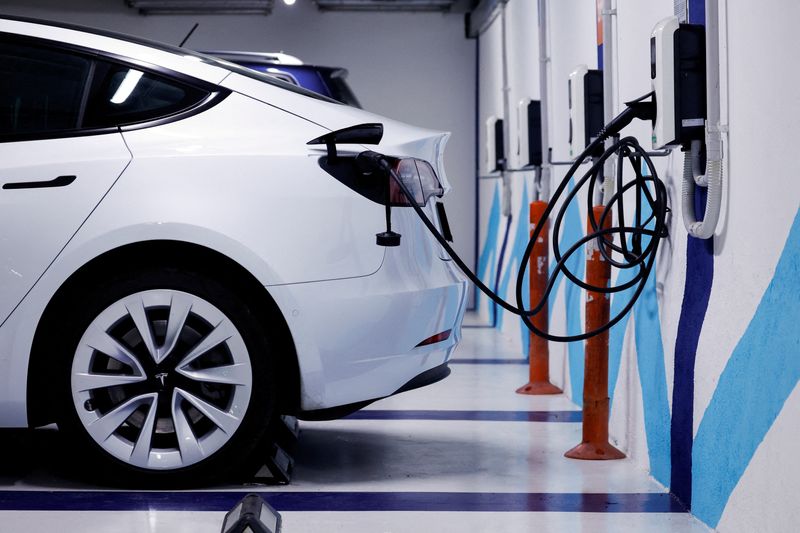
The ECA, an independent external auditor of the EU, stated that nearly 20% of new cars registered in the EU in 2021 were electric.
Also Read: Microsoft notches record high valuation of nearly $2.6 trillion
With an estimated 30 million zero-emission vehicles expected on European roads by 2030 and a ban on new petrol and diesel cars by 2035, the demand for batteries will soar. However, the EU’s strategy has not adequately addressed its ability to meet this growing battery demand.
Annemie Turtelboom, who led the ECA audit, expressed concerns about the EU’s ambition to become a global battery powerhouse, emphasizing that the odds of success are not favorable.
Turtelboom warned that if the EU fails to produce enough batteries domestically, it may either miss its emissions goals for 2035 or rely heavily on imported batteries, which could harm European industry and come at high costs from other countries.
The EU’s reliance on a few countries for raw materials poses a significant risk. The ECA highlighted that, on average, the EU imports 78% of five key materials. This concentration of supply brings geopolitical risks and potential shortages.
Turtelboom emphasized that the EU should avoid becoming as dependent on batteries as it is on natural gas from Russia.
The report revealed that a significant portion of the world’s cobalt comes from the Democratic Republic of Congo, while China dominates global battery production capacity and supplies 40% of natural graphite.
The EU relies entirely on imports of refined lithium. Although extraction in Europe is possible, it will take considerable time, with Portugal, holding the bloc’s largest lithium reserves, not expecting production to begin until 2026.
Furthermore, the ECA identified that the EU lags behind in terms of cost competitiveness, partly due to high energy prices. The EU Commission’s data was found to be outdated and incomplete, and public funding for battery projects remains uncoordinated, leading to overlaps and inefficiencies.
Also Read: Netflix Tudum 2023: Everything Announced
In summary, the report from the European Court of Auditors raises concerns about Europe ability to become a global battery powerhouse. Limited access to raw materials, rising costs, intense competition, and an inadequate strategy pose challenges to the EU’s ambitions.
The report warns that failure to address these issues could result in missed climate goals or heavy reliance on imported batteries, which would harm European industry and come at a high price.

I am a law graduate from NLU Lucknow. I have a flair for creative writing and hence in my free time work as a freelance content writer.
The European Commission announced on Wednesday that EU antitrust investigators are searching for additional details on Apple’s smartphone payment system, Apple Pay. This is an indication that the regulator is trying to plug any gaps in its allegations against the iPhone manufacturer.
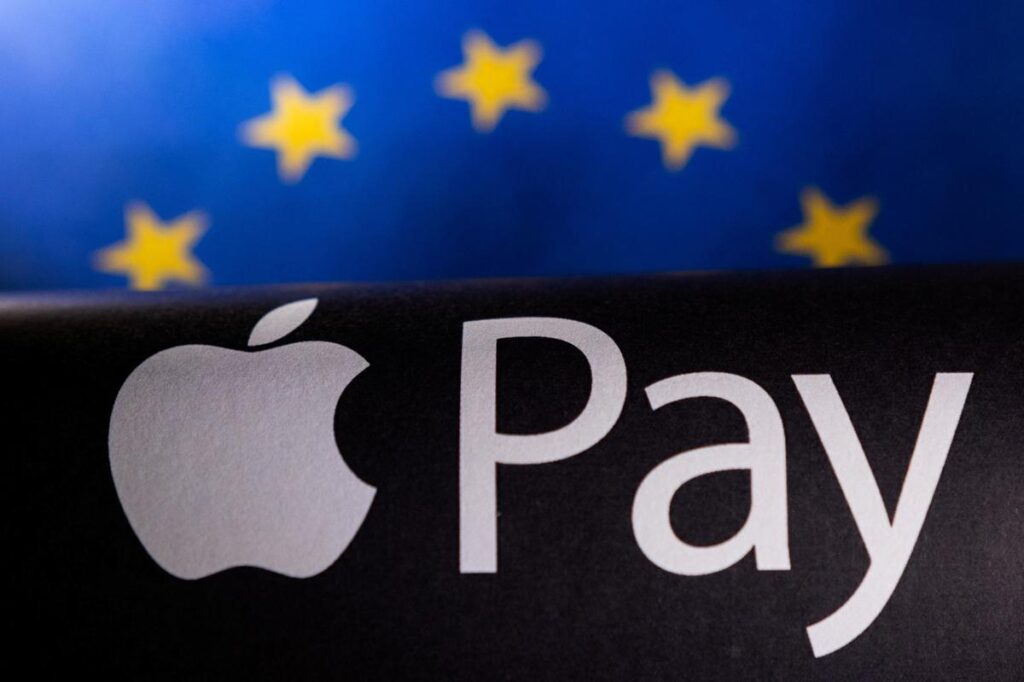
A year ago, the EU antitrust authority alleged Apple conspired to make it hard for its competitors to establish competing solutions for Apple devices by limiting their access to its tap-and-go Near-Field Communication (NFC) technology, which is utilized for mobile wallets.
Also Read: Apple launches ‘buy now, pay later’ service in the US
“We can confirm the sending of requests for information,” a commission spokesperson said while declining to provide details.
Apple opted not to respond.
Apple has already mentioned the popularity of PayPal within its iOS smartphone OS as an alternative for users, along with rival MobilePay from Denmark, Swish from Sweden, as well as Payconiq from Belgium.
complainant Vipps and a mobile payment app from Norway claimed that NFC options are inefficient and uncompetitive.
It is rare for the commission to ask competitors and retailers for material now, three months afterward, Apple justified itself in an inquiry on February 14.
Following such hearings, the regulator normally makes its decision. If proven guilty of breaking antitrust regulations, the agency has the power to penalize Apple a maximum of ten percent of the company’s worldwide revenue.
Apple also debuted the “buy now, pay later” (BNPL) scheme in the United States in March, posing an imminent danger to the fintech industry, which is currently dominated by companies like Affirm Holdings as well as the Swedish payment provider Klarna.
With its “buy now, pay later” support, Apple is attempting to enter the loan industry. As a result, the corporation has established guidelines regarding how it will accept transactions. If you’ve been a loyal client in the past, this is one important consideration.
The Apple Pay Later service, which was introduced a year ago but is still under testing, will assess consumers based on their purchasing patterns in addition to which Apple products they now own.
Also Read: What is Apple’s rapid security response?
The service, which enables users to make purchases and spread-out payments over time, will also check to see if users have applied for an Apple Card credit card or any additional cards, they have associated with their Apple Pay account.
According to the firm, Apple Pay Later will enable customers to split expenditures into four installments spaced out over six weeks without any interest or fees. It will first be made available to a small number of users to bring it out to everyone in the upcoming months.

I am a student pursuing my bachelor’s in information technology. I have a interest in writing so, I am working a freelance content writer because I enjoy writing. I also write poetries. I believe in the quote by anne frank “paper has more patience than person
German engineering giant Siemens and German business software firm SAP have joined American IT juggernauts in denouncing new EU legislation on the use of data produced by consumer goods and other smart devices. Before the Data Act can be enacted as law, EU member states and EU legislators are working on its specifics.
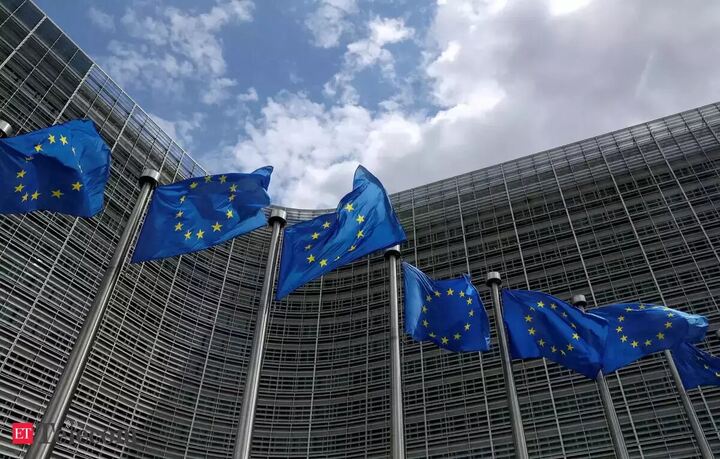
The proposed law, which addresses corporate and consumer data from the EU, is one of several pieces of legislation designed to restrain the influence of American tech titans and aid the EU in achieving its digital and environmental goals.
The proposed rule has drawn criticism from the United States for being overly onerous, and German businesses have voiced concern that a section requiring corporations to exchange data with third parties in order to supply aftermarket or related data-driven services could jeopardize trade secrets.
Also Read: What is Apple’s rapid security response?
“It risks undermining European competitiveness by mandating data sharing, including core know-how and design data, with not only the user, but also third parties,” the companies warned in a joint letter to Commission President Ursula von der Leyen, EU antitrust chief Margrethe Vestager, and EU industrial chief Thierry Breton.
According to them, “effectively, this could mean that EU companies will have to divulge data to third-country rivals, particularly those not operating in Europe and against which the Data Act’s safeguards would be ineffective.”
The chief executives of the two firms, Siemens Healthineers, German medical technology company Brainlab, German software developer DATEV, and lobbying group DIGITALEUROPE were among the signatories to the letter, dated May 4, obtained by Reuters.
The letter urged that the list of devices covered by the law not be expanded and called for measures to allow companies to reject requests to divulge data where trade secrets, cybersecurity, health, and safety are in danger. The Commission acknowledged receiving the letter and stated that while it recognized the value of trade secrets, corporations shouldn’t exploit them as an excuse.
The Data Act does not seek to alter international or domestic trade secret laws. Trade secrets shouldn’t, however, be a justification for avoiding sharing data, said Johannes Bahrke, a spokesperson for the EU Commission, at a daily press briefing.
The EU draft Data Act is a proposed legislation aimed at regulating data access and use within the EU. While the Act primarily deals with personal data, it also has provisions that could impact trade secrets.
Also Read: Is advertising the future of streaming?
One provision of the draft Data Act requires companies to disclose certain information about their data processing activities, including information about algorithms used to process data. This provision could potentially put trade secrets at risk, as companies may be required to disclose proprietary algorithms that give them a competitive advantage However, the draft Data Act also includes safeguards to protect trade secrets.
For example, companies would be able to request that certain information be kept confidential, and there are provisions in the Act that limit the disclosure of confidential information to specific parties, such as regulators or courts.

I am a law graduate from NLU Lucknow. I have a flair for creative writing and hence in my free time work as a freelance content writer.
The European Union has set a December 27, 2024 deadline for device makers to shift to USB-C for data and charging ports, which implies Apple will be required to give up the iPhone Lightning connector before then.
Whilst European Union had already reached a decision, the date is a recent development. It implies that the 2024 iPhone 16 will indeed be able to operate without USB-C, but the 2025 iPhone 17 will be required to have it.
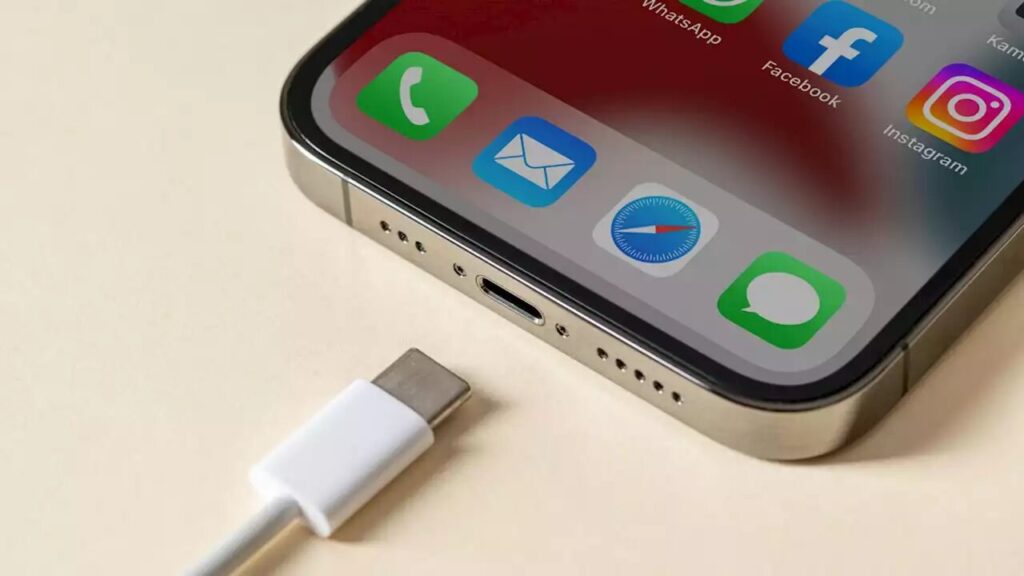
There is a possibility that Apple will make the iPhone 17 completely portless, relying on Wi-Fi for data transmission and wireless charging to charge the battery. Wireless charging devices are excluded from the European Union’s new regulations.
We’ve already heard rumours that Apple is considering switching the iPhone 15 or at least the Pro models to USB-C for its port. However, we’ve heard the same rumour about so many consecutive iPhones at this point.
Read More: Apple to Start Encrypting iCloud Backups
The EU’s deadline for laptop manufacturers has been extended till April 2026. To improve compatibility, hardware manufacturers will have to ensure that the exact charging speed is present regardless of the charger used.
Of course, this only appears to apply to the EU, but it’s not good enough to justify it for companies like Apple to produce one version of its products with USB-C and another without. The only question right now is how long the users have to wait for a USB-C iPhone.
The iPhone’s adoption of USB-C has been a hard journey. It’s something we’ve been asking since the release of the iPhone 12 in 2020, and rumours regarding Apple trying to make the switch on its flagship handsets have been circulating for nearly as long.
Apple is well-versed in the technology since it is already used in MacBook ports and iPad devices. Even the entry-level iPad switched to USB-C previously this year, leaving only iPhones to use the Lightning standard.
It makes good sense for Apple to switch since there isn’t much reason to remain with its proprietary standard at this point. Apple executives have publicly stated that they will have to abide by whatever directive the European Union imposes.
We’d be fascinated if Apple waits till the iPhone 17 to bring USB-C, but the iPhone 15 could be too soon. This is all speculative, but possibly the iPhone 16 which is expected in September 2024, will be the first to include USB-C.

I am a student pursuing my bachelor’s in information technology. I have a interest in writing so, I am working a freelance content writer because I enjoy writing. I also write poetries. I believe in the quote by anne frank “paper has more patience than person
Recently the European Parliament passed a resolution mandating the use of USB-C as a common charging port by 2024. All smartphones, cameras, and tablets sold in the European Union must include a USB-C charging port end of 2024. The new rules will also be applicable to laptops starting 2026, providing manufacturers more time to adapt.
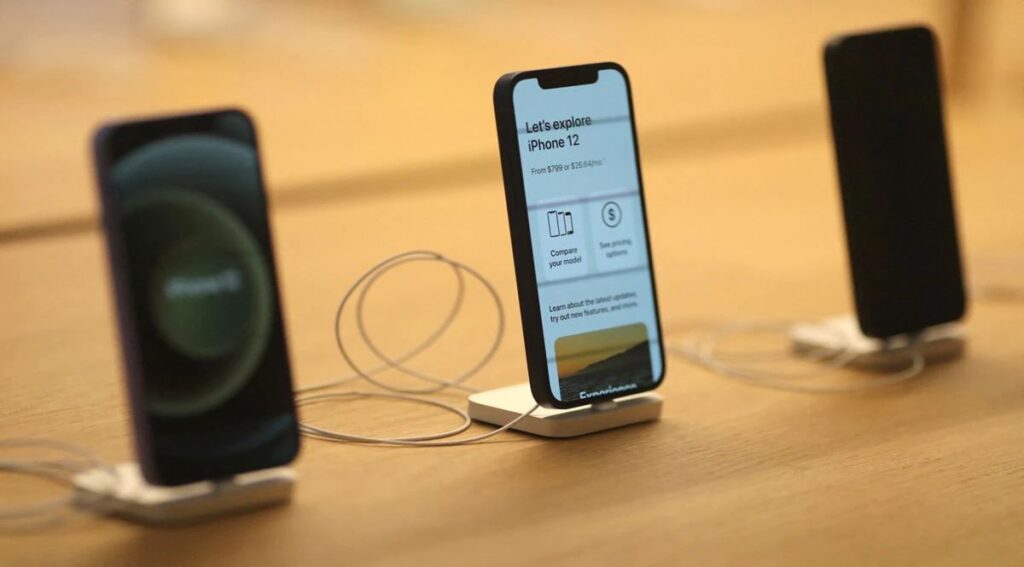
The new rule is a component of a larger EU initiative to minimise e-waste and give consumers more ability to make environmentally friendly decisions.
The new regulations will allow consumers to use a common charger for a wide variety of medium and small portable electronic gadgets, eliminating the need for a different charger each time they buy a new device. The new directive was supported by 602 members of the European Parliament.
The USB-C ports used by Android-based gadgets are soon to become the norm across the 27-nation bloc Apple continues to offer its exclusive Lightning connector on the iPhones, AirPods, as well as other devices. As a result of the new regulation Apple will have to migrate to USB-C charging point by the end of 2024.
The reform, the first of its sort anywhere in the world, was voted by a resounding margin in the European Parliament on Tuesday. The move may boost the EU’s position as a leader in setting international standards for telecommunications. This “common port” restriction will affect Apple specifically because a significant chunk of Apple’s devices utilize the Lightning connector instead of USB-C.
MEPs claim that the modification will reduce electronic waste, enhance product sustainability, and enhance the usability of numerous products. .According to Executive Vice President Margrethe Vestager, the move will reduce environmental waste and save customers approximately $247 million a year by eliminating the need to purchase a new charger for each device.
In 2018, the European Commission attempted to find a permanent solution to this issue, however it was not effective in becoming law. Apple said at the time that mandating a standard charging port would hinder innovation and result in electronic waste because customers would be compelled to purchase new cables. Last year, the EU’s continued its efforts, with the European Commission leading the development of a revised version of the directive.
The Internal Market and Consumer Protection Committee backed the guideline in April with a vote of 43 in favour to 2 against. In June, the directive was introduced in the European Parliament. Bloomberg reported in May that Apple is testing upcoming iPhone models that swap out the exclusive Lightning charging port for the more common USB-C connector. USB-C charging ports are already present in the iPad Pro models and Apple laptops.
All new smartphones, tablets, digital cameras, headphones, headsets, portable speakers, handheld game consoles, e-readers, keypads, portable navigation systems, earbuds, and laptops that can be charged via a wired cable and operate with a power delivery of up to 100 Watts must have a USB Type-C port, regardless of the manufacturer.
Users will be able to charge their smartphones at the same pace with any suitable charger since all devices that enable rapid charging will now offer the same charging speed.
The new directive is expected to have the most effect on Apple’s iPhone. Apple has firmly remained with Lightning Connector it first debuted with the iPhone 5 back in 2012. The majority of the smartphone market has progressively focused on USB-C as a singular, standardised wired charging interface. Legislation from the EU may finally compel Apple change its charging port.

I am a law graduate from NLU Lucknow. I have a flair for creative writing and hence in my free time work as a freelance content writer.